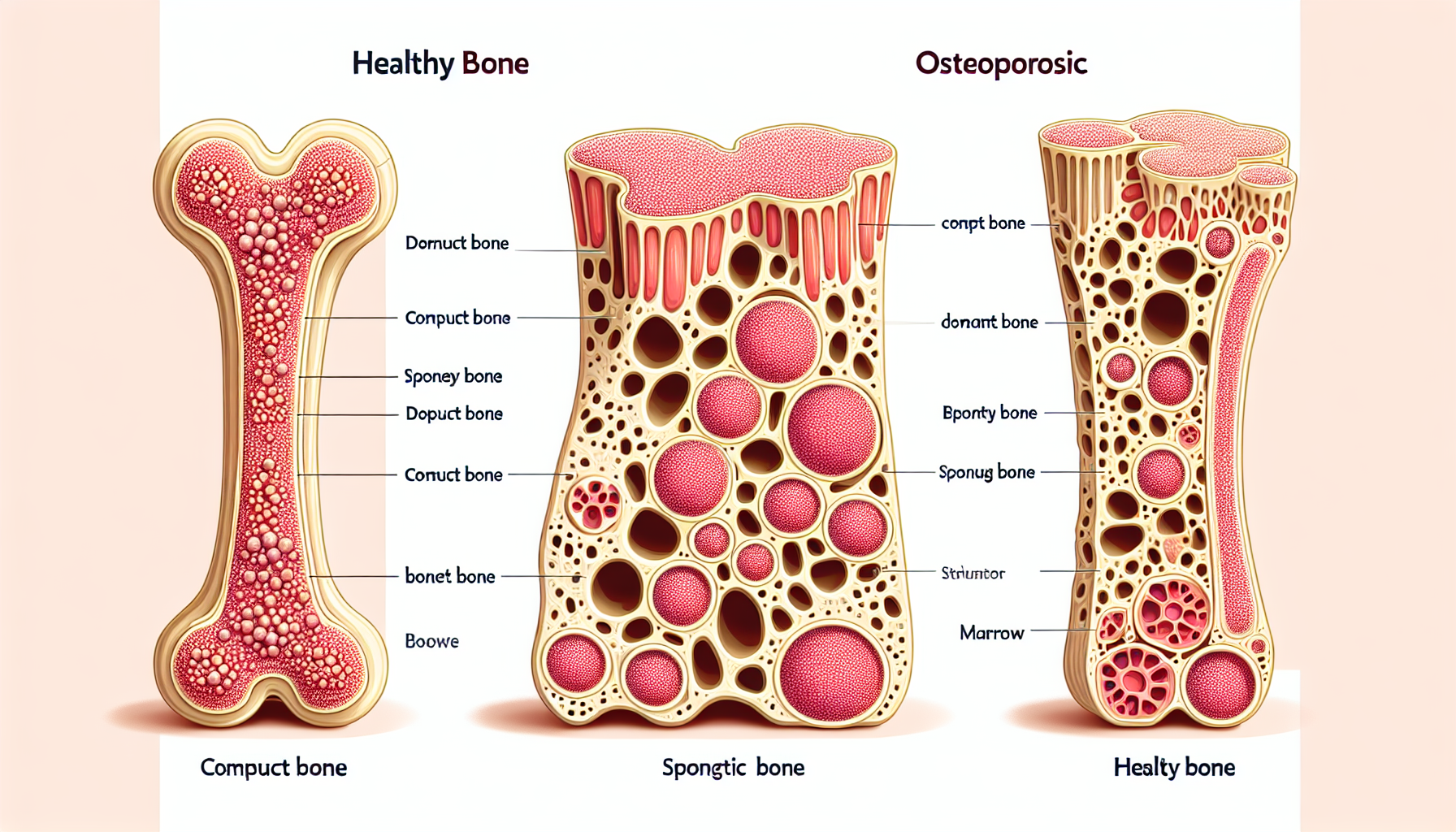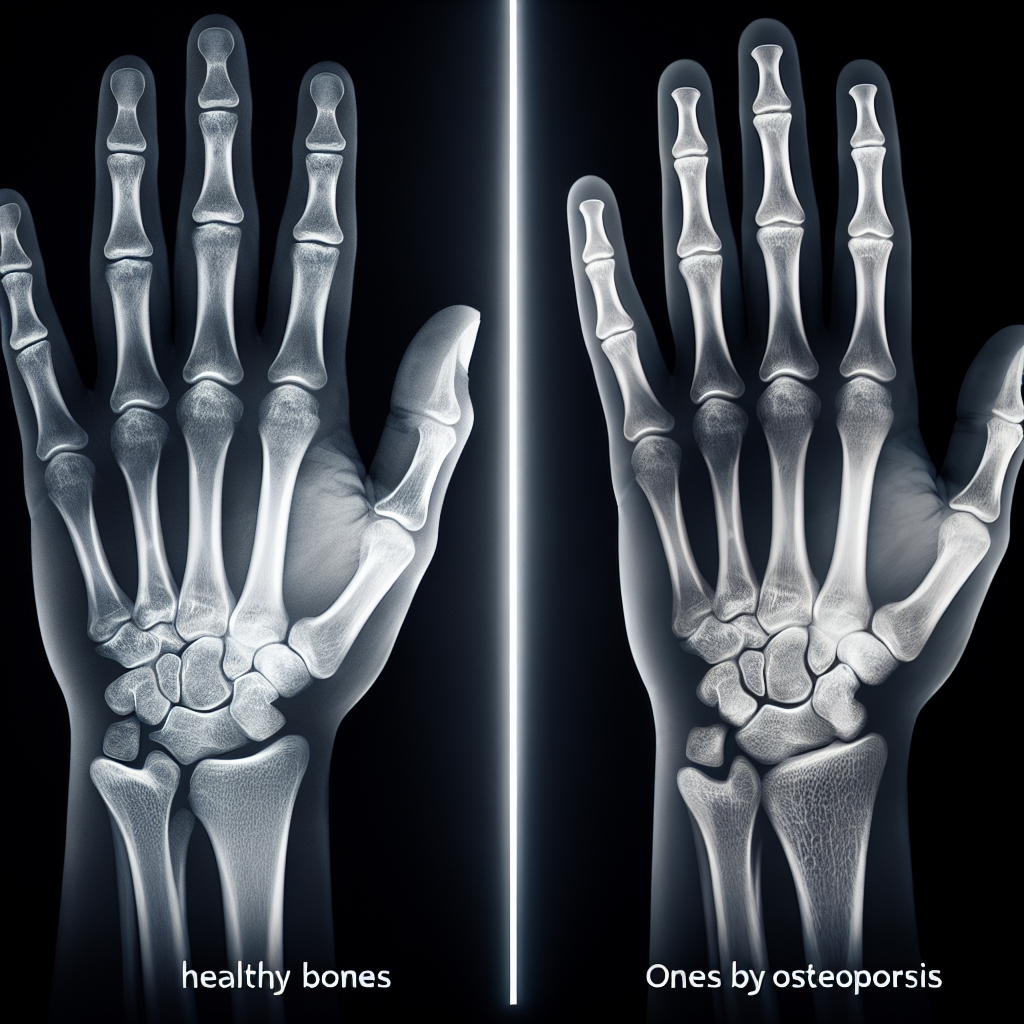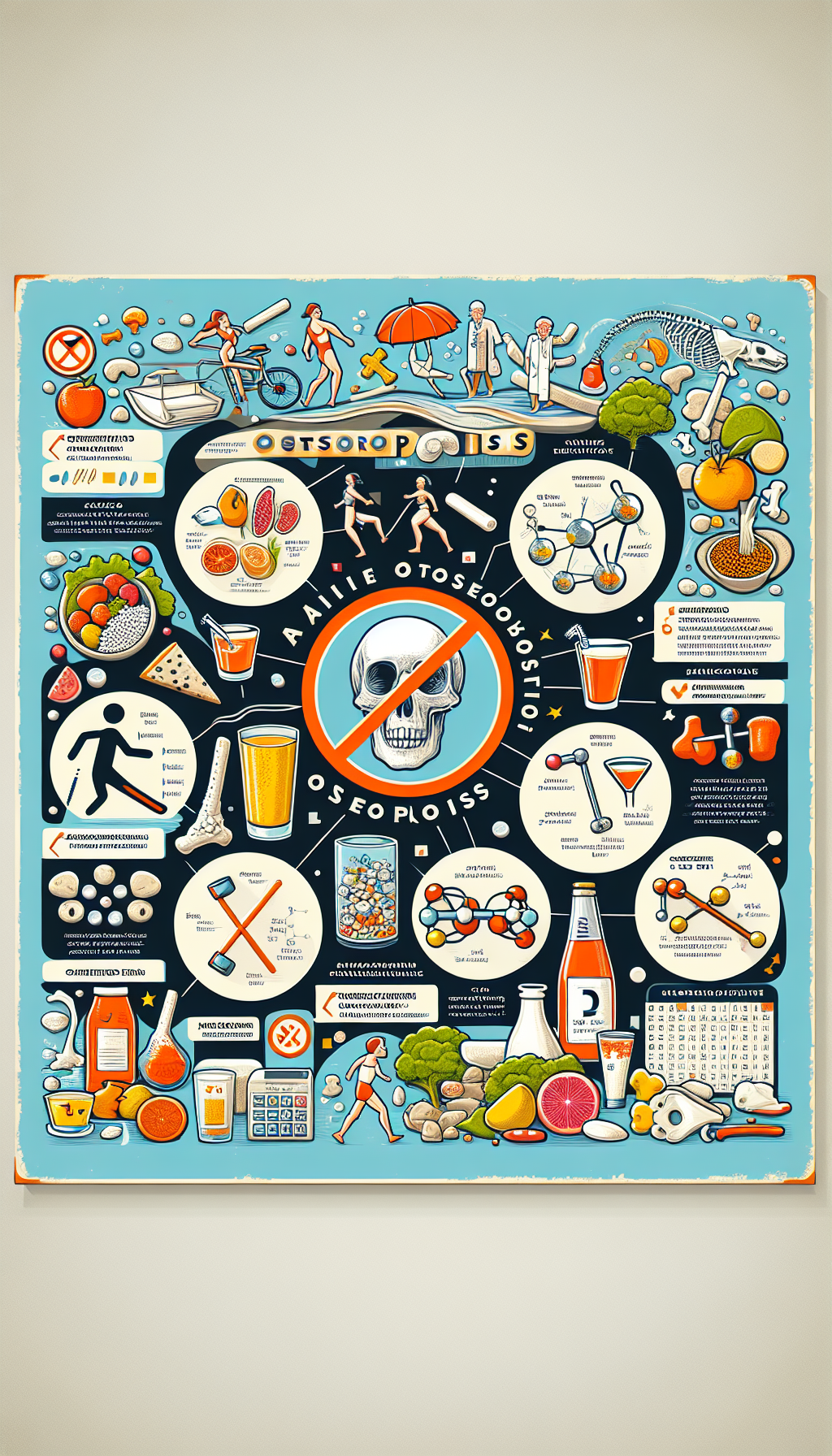Osteoporosis is a condition characterized by weakened bones that are more susceptible to fractures. As we age, the risk of developing osteoporosis increases, making prevention a critical aspect of long-term health. Understanding the various factors that contribute to bone health and implementing strategies to bolster bone density is essential in the fight against this silent disease. In this article, we will explore comprehensive prevention strategies that encompass diet, exercise, and lifestyle choices, drawing on the latest research to provide actionable advice for maintaining strong bones throughout life.
The Foundation of Bone Health
Bones are living tissue, constantly undergoing a process known as remodeling, where old bone is replaced by new. This cycle is crucial for maintaining bone strength and density. However, various factors can disrupt this balance, leading to the development of osteoporosis.
To maintain robust bone health, it is essential to start with the basics. Ensuring an adequate intake of calcium and vitamin D is foundational. Calcium is the primary mineral found in bones and is required for maintaining their strength and structure. Vitamin D, on the other hand, is vital for calcium absorption and bone growth. A lack of these nutrients can lead to brittle, fragile bones that are prone to fractures.
For more in-depth guidance on maintaining bone health at every stage of life, consider reading Bone Health at Different Life Stages, which provides tailored advice for each age group.
Nutritional Allies in Bone Health
A balanced diet rich in bone-friendly nutrients is a cornerstone of osteoporosis prevention. Beyond calcium and vitamin D, other minerals and vitamins play a role in bone health. Magnesium, potassium, and vitamins K and C all contribute to bone density and strength.
Incorporating a variety of fruits, vegetables, lean proteins, and whole grains can help ensure you’re getting these essential nutrients. For instance, leafy greens are abundant in calcium and magnesium, while fatty fish like salmon provide vitamin D.
For practical tips on optimizing your diet for bone health, check out Nutrition Tips for Healthy Bones, which offers valuable insights into the best foods for supporting bone density.
Exercise: A Pillar of Bone Density
Physical activity is another key element in preventing osteoporosis. Weight-bearing exercises, such as walking, jogging, and strength training, can help build and maintain bone density by stimulating bone formation. Additionally, balance and flexibility exercises can reduce the risk of falls, which is particularly important for those with weakened bones.
To explore the relationship between physical activity and bone health, the article Impact of Lifestyle on Bone Health provides an in-depth look at how various forms of exercise can benefit your skeletal system.
Hormonal Balance and Bone Density
Hormones, particularly estrogen, play a significant role in bone health. In women, the decline in estrogen levels during menopause can lead to an increase in bone loss. Men also experience a gradual decline in testosterone, which can affect bone density.
Addressing hormonal imbalances through lifestyle modifications, and when necessary, medication, can help manage the impact on bone health. To understand the intricate relationship between hormones and bone density, the article How Hormones Affect Your Bone Density offers a comprehensive overview.
Lifestyle Choices and Bone Health
Lifestyle choices such as smoking and excessive alcohol consumption can have detrimental effects on bone health. Smoking has been shown to interfere with the body’s ability to use calcium, while excessive alcohol intake can lead to bone loss. Adopting a healthy lifestyle that includes quitting smoking and moderating alcohol consumption is beneficial for maintaining strong bones.
To delve into the various lifestyle factors that can influence your bone health, consider reading Managing Bone Health with Age, which discusses strategies to preserve bone density as you get older.
Understanding and Monitoring Bone Density
Regular bone density tests can help track bone health and identify osteoporosis early. These tests are particularly important for individuals at higher risk due to age, family history, or other health conditions. Being proactive about monitoring bone density can lead to earlier intervention and better outcomes.
For a deeper understanding of these tests and how they can aid in managing bone health, Understanding Bone Density Tests is an excellent resource.
External Resources for Further Reading
- International Osteoporosis Foundation: A global resource for patients and healthcare professionals with detailed information on prevention and management of osteoporosis.
- National Osteoporosis Foundation: A dedicated platform offering support and education on bone health and osteoporosis.
- Bone Health and Osteoporosis Foundation: Provides patient-focused resources and educational materials on bone health.
- Osteoporosis Canada: A comprehensive site with guidance on preventing and managing osteoporosis through nutrition, exercise, and lifestyle.
Conclusion
Preventing osteoporosis is a multifaceted endeavor that requires attention to diet, exercise, hormonal health, and lifestyle choices. By incorporating the strategies discussed in this article and staying informed through reliable resources, individuals can take significant steps towards maintaining strong bones and preventing the onset of osteoporosis.
Remember, it’s never too early or too late to start focusing on your bone health. With the right approach, osteoporosis can be prevented, and you can enjoy a healthy, active life free from the worry of fragile bones.



